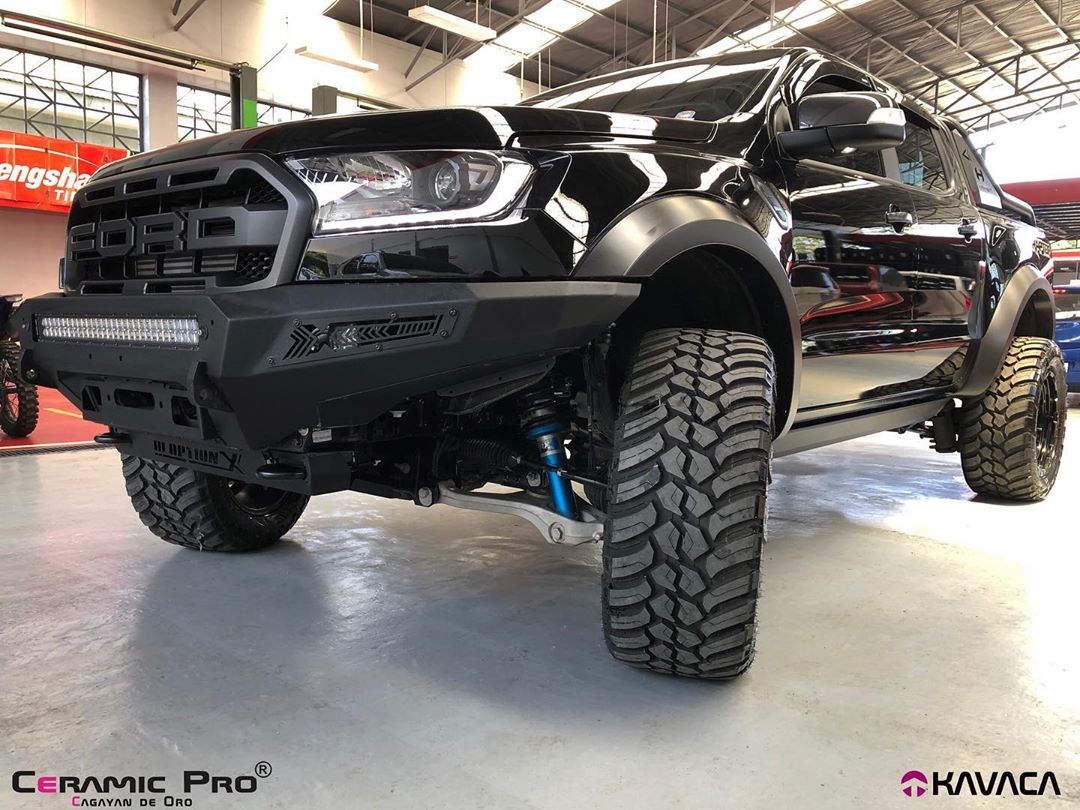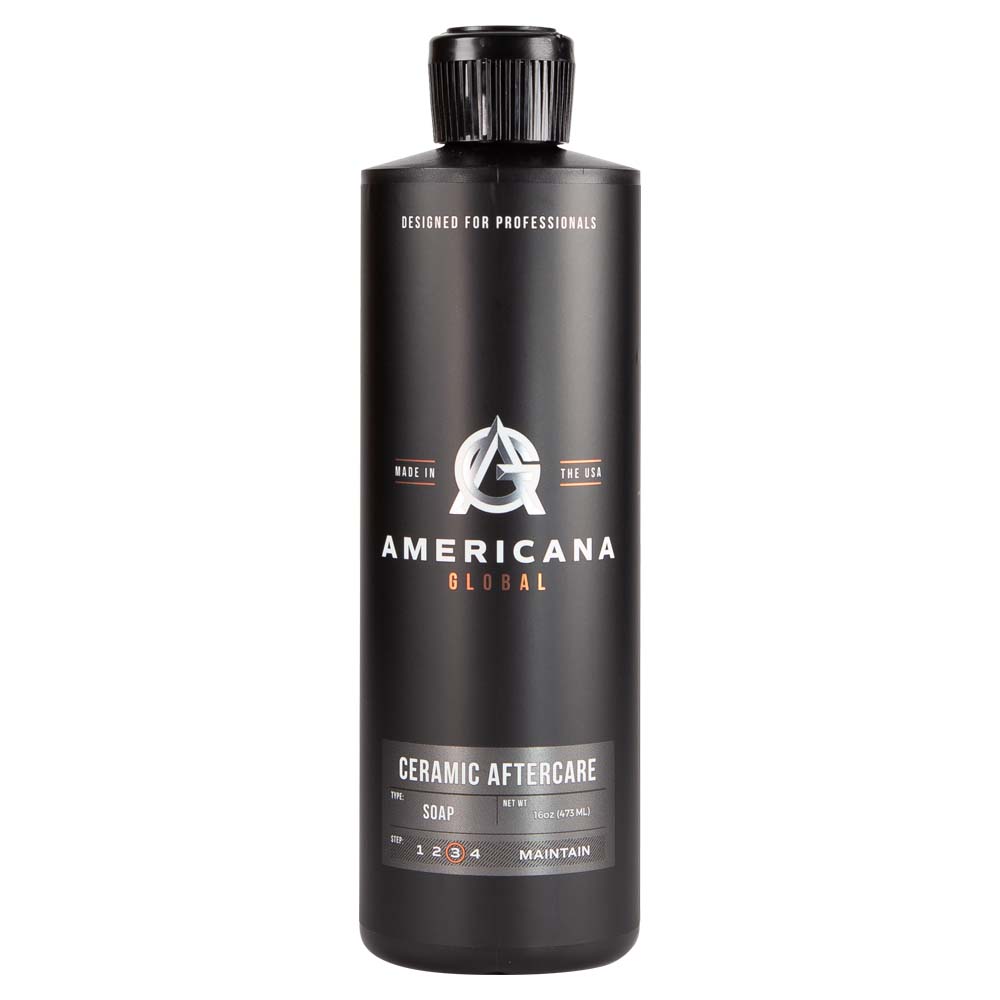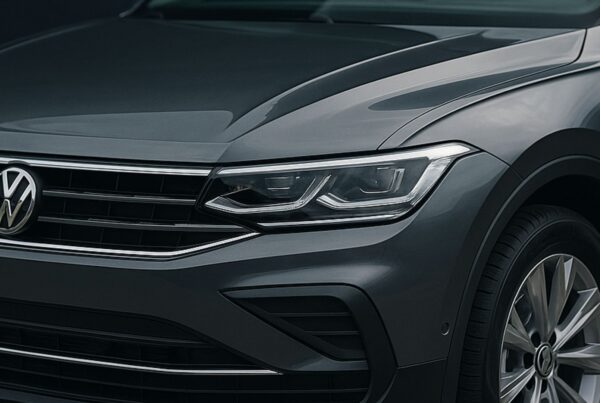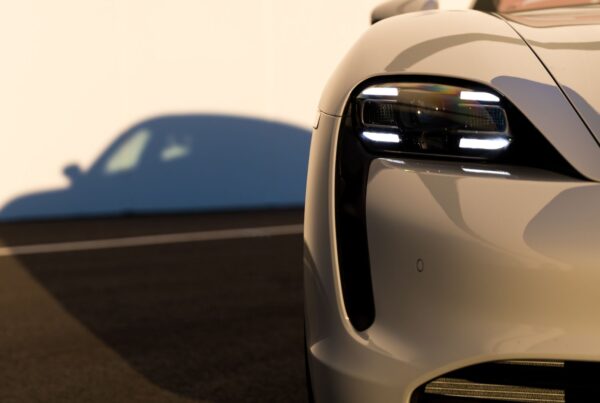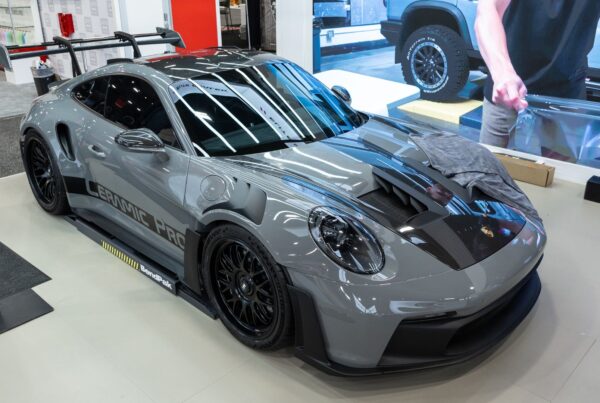What You Need to Know About Ceramic Pro 9H Maintenance
When you spend top dollar on a professional ceramic coat – like Ceramic Pro 9H, it’s crucial to protect that investment. Whether you have an agreement with one of our awesome auto salons for maintenance washes, or choose to tackle these projects yourself, keeping that ceramic paint coating on your car, truck, and SUV clean is a proven way to extend the life and brilliance of the coating.
However, there are some general misunderstandings or flat out myths about what you can and can’t use on a vehicle protected by Ceramic Pro 9H. So, let’s take a stroll down the path of myth busting. In today’s CeramicPro.com blog, we’ll dive into the top 5 myths about maintaining a ceramic coat applied to your vehicle’s paint.
Why Is it Important to Maintain a Ceramic Coated Car?
Most people invest in a professional ceramic coating for its self-cleaning abilities. While a few coats of Ceramic Pro 9H will leave the surface super hydrophobic and thus, easier to keep clean, it’s just not possible to keep the car 100% clean – all the time.
A dedicated surface paint sealant that bonds to the clear coat might last a few months to a year. The protective coating on the other hand offers years of protection. In fact, you can also apply dedicated surface protection such as Ceramic Pro Rain for windows. Ceramic Pro Wheel is made just for vehicle rims – helping to improve the hydrophobic surface to keep them cleaner – longer.
Take a few minutes to watch our buddy Adam Cote explain the science behind Ceramic Pro 9H technology.
A coated car’s paint surface is quite slippery, which allows water, light dust, and debris to simply ‘fall off’. But, if the water is dirty, has high calcium or other minerals, or if pollen is stuck to the coating, it can still get dirty. While i’ll continue to block those UV rays, it contaminants on the car’s paint will reduce some of those hydrophobic properties.
When this happens, it’s important to wash these contaminants from the coated surface. While 9H hardness is exceptionally durable, continued exposure to dirt, road grime, and especially bird droppings or bug guts can start to slowly break down that strong ceramic coat.
We recommend washing your car every two weeks, using one of these three methods:
The two-bucket hand washing method. This is the most common washing technique of professional detailers. It allows you to remove debris from the paint surface with a clean microfiber mitt with every application.
Plus, this method is great for reducing swirl marks, makes removing industrial fallout or brake dust easier, and allows the nano ceramic coating to enhance the painted surface – whether it’s gloss or matte finish. This is a great washing technique for those with a clear bra or other Ceramic Pro coating solutions like our paint protection film – Kavaca.
High-pressure wash and rinse. For those with a high-pressure washer, this is a hand-free solution or touchless car wash. You’ll use a foam cannon to apply the car shampoo, let it sit and dwell for a few minutes, and spray off. It’s not a great washing method for sticky stuff like bird droppings or tree sap, but it’s easier than other techniques.
Take it to a professional auto salon. If you’d prefer a completely hands-off solution, book an appointment with a local auto salon or detailing center. Many shops offer a frequent washing or detailing program, that can save you a lot of money on routine car washes and interior detailing services. Mobile detailers are also great sources for routine car washing services.
Now that we’ve cleared that up, let’s dive into those myths we teased earlier.
Myth #1 – Ceramic Coated Cars Can Use Any Soap – FALSE
We’ve used this phrase before, but its so applicable. Ceramic coatings are not bulletproof. When they harden, it forms an invisible shield of protection by hardening on the substrate (or the materials where it’s applied). While this coating is as strong as quartz or glass (which is where the phrase glass coating or quartz coating comes from), it’s a bit finicky when it comes to product used to wash it.
A ceramic coating should be washed with an automotive specific shampoo, that is pH neutral, contains no wax, and is ultra-suds producing. Most detergents (like dish soap) are high alkaline or +9 on the pH scale. This can leave a film on top of the coating if not completely rinsed off – or if it dries too quickly.
The wax in the shampoo is often inserted for lubrication purposes, but it also tends to leave a layer on the surface where it’s used. While this is good for a car without a ceramic coating, those with this hard surface protectant will notice reduced hydrophobic effects. A light coating of wax is also a dirt and debris magnet – so it makes it easier for pollen, dust, and road grime to stick.
So, if you’re going to wash your ceramic coated vehicle yourself, make sure to use a high-quality, car shampoo such as Americana Global Ceramic Aftercare shampoo.
Myth #2 – Using a Quick Detail Spray is OK – Partially True
It’s also commonly suggested that using a quick detail spray or a waterless wash to maintain a ceramic coating is likewise and OK option. Well, this is partially true. If you’re looking for a quick way to remove light dust once you arrive to a car show, or before heading to Vegas after a road trip, then the QDS is an acceptable solution.
But, it’s not the same as a good maintenance wash. A full car wash (as explained in myth number uno above) will remove those larger contaminants. The quick detail sprays are simply not designed for serious car washing. So, our advice is to use these products sparingly – not as a full washing or maintenance solution.
Myth #3 – All Ceramic Boost Sprays are the Same – FALSE
This is one that really chaps our hides. The past three years has seen a plethora of ‘miracle all-purpose ceramic coatings’ of the spray variety show up on the market. Most of them claim to provide 9H hardness and months of protection – when used as a standalone product. When they’re used on top of a nano coating, they “boost” the performance.
There are a select few that are good for protection – and those would be products called SiO2 Boost Sprays. However, it’s important to learn how to weed through the plethora of silicone-based slippery sprays to find a boost that is truly far out.
There are generally three types of products made today:
Teflon-based sprays: You know that non-stick cooking pan in your pantry – that’s good for cooking eggs and stuff? Well, the magic ingredient that helps protect that pan is Teflon. This material is considered a “ceramic”, but it’s not great as a paint protection solution. It will make the car’s paint slippery and appear hydrophobic, but it’s not much more than that. If you’ve got a professional-grade ceramic coating, avoid these products.
Silicone-based sprays: The second range is the silicone/wax hybrid sprays that are likewise branded as “ceramic coatings”. Again, by definition, these ingredients are ceramic – but just don’t harden as well as the nano coating will. If you’d like to use these as a cheaper and more convenient method for protecting your car, it’s better than the ones above – but not Mount Everest level.
SiO2 Boost Sprays: OK, so this is where the good stuff comes into play. It’s a silicon dioxide (or SiO2) and titanium dioxide (TiO2) blend. These two ingredients help a ceramic coating bond to the surface, harden, and protect what’s underneath it. If you’re going to use a maintenance spray for a professional ceramic coating, or a high-quality DIY nano coating, always opt for the SiO2 Boost.
We’ve got an amazing boost spray called Ceramic Pro CARE. It’s easy to apply and works on all professional-grade ceramic coatings on the market.
Myth #4 – Washing a Ceramic Coating in Sunlight is OK – WAY FALSE
For many passionate car owners, washing your ride on a sunny day with a cool beverage in your hand is a religious experience. However, most of us understand that we need to do the actual washing in the early morning or late afternoon period. The reason for this is that direct sunlight will always cause havoc when washing any car.
But, what you may not know is that it’s even worse on a ceramic coated car. Ceramic coatings are super slick and hydrophobic, which means that water and soap doesn’t last very long on the surface. This can accelerate the drying process, which leads to soap and scum sticking to the coating.
To avoid this problem, never wash your ceramic coated vehicle in direct sunlight. Wash on an overcast day, early in the AM, indoors, or right before sunset. Then, make sure you fully rinse the vehicle off to remove any existing shampoo.
Myth #5 – Self Washing Will Void Ceramic Coating Warranties – Not Necessarily
So – this is the one that a lot of DIY ceramic coating companies really get wrong. One of their marketing gimmicks is to tell their customers that the only way to cover a long warranty with a professional Ceramic Pro 9H package is to have the installer or detail shop complete all maintenance washes.
That’s just 100% wrong. In fact, most of our certified auto salons are set up for paint correction, paint protection film installation or ceramic coating services. They’re not built for routine service washes – but are more than happy to help our customers find the best ways to maintain their ceramic coating.
One thing that is vital to maintaining the Silver or Gold packages with Ceramic Pro is to visit your installation auto spa once per year for an annual inspection and treatment. During the inspection they’ll complete a detailed inspection, clean-up, and add any Ceramic Pro SPORT.
This is our secret sauce, or a professional-only applied boost enhancer – that’s specifically formulated for Ceramic Pro 9H and our Top Coat products. If you’d like to schedule a consultation with an auto salon near you, or receive a free estimate for Ceramic Pro 9H coatings, click the button below.



